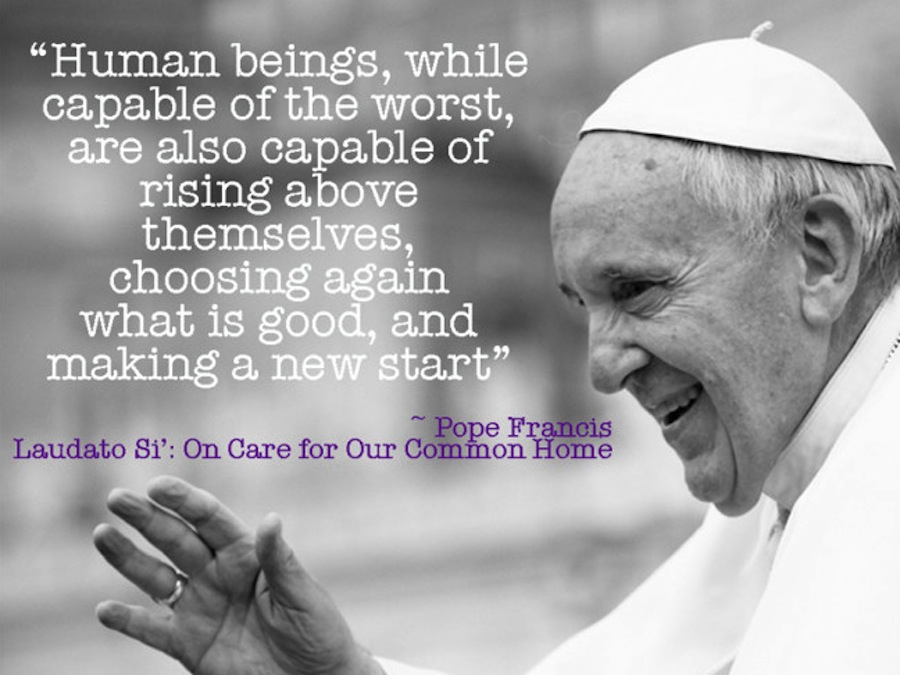
In his new encyclical, Laudato Si, Pope Francis calls us to an “Integral Ecology” (10), a worldview that harmonizes all the dimensions of our existence: physical, biological, social, and spiritual. This harmony is essential if we are to attain the Joy of the Gospel to which the Pope urged us in his previous writing. Integral Ecology is based on a contemplative way of living that has been exemplified by holy men and women from Biblical times to the present. A contemplative person does not rush frenetically from one thing to another, but finds joy in life as a whole. The psalms of the Bible give exuberant praise to the beauty of creation, and St. Francis of Assisi, in his famous “Canticle of the Creatures,” cries with delight, “Praise be to you, my Lord, through our Sister, Mother Earth” (1). In stark contrast to this praise is the “technocratic paradigm” that attempts “to extract everything possible” from creation (106), and ends by depriving the poor of basic resources (109). Orthodox Patriarch Bartholomew claims, “God wants us to replace consumption with sacrifice, greed with generosity, wastefulness with a spirit of sharing, ….moving gradually away from what I want, to what God’s world needs” (9). Our tendency to put our own desires above what God wants has caused a host of dire consequences, from global pollution and the loss of biodiversity, to “increased violence, a rise in new forms of social aggression, and growing drug use by young people” (46). We might feel like victims of forces beyond our control, but God is never without a saving plan for his beloved children, that is, for all members of the human race. His plan is not automatic though; it requires prayerful cooperation. Laudato Si invites us to cooperation, with God and with one another, in building a world that will be a source of wonder and delight for all generations to come (160). -Fr. Tom Frink
